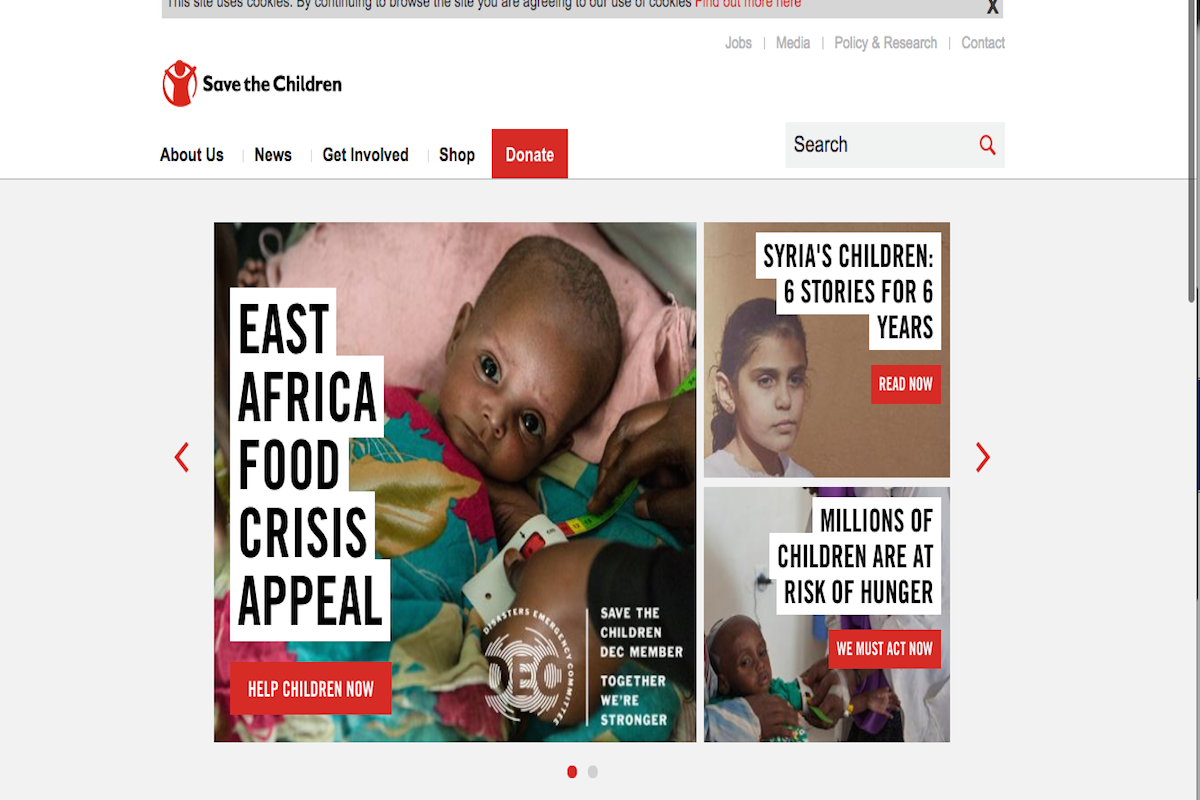Save the Children UK CIO to pilot a 'humanitarian passport' using blockchain
Karl Hoods explains how Adobe, agile and DevOps are helping the firm to digitally transform

Save the Children UK has kick-started its digital transformation efforts by moving to Adobe Marketing Cloud in just one of several huge IT projects the company has been working on over the last year, which also includes a blockchain-based humanitarian passport'.
The charity's CIO Karl Hoods tells IT Pro that over the last year, the organisation has been heavily focused on its digital transformation programme which is about engaging more closely with its supporters and making sure that it delivers personalised, time-relevant content.
"Everyone talks about customer centricity, but for us it's about supporter centricity and also making that relevant to wider stakeholders across government, press and campaigns," he says.
Hoods explains that the very first part of the charity's efforts to digitally transform was getting the right technology and platform in place, so that it can provide the right services and it decided to go with Adobe Marketing Cloud.
The first phase of the programme brought together the digital marketing team and digital development team from the marketing and technology departments respectively.
Because of the good working relationship between the teams, Hoods doesn't feel it is necessary to have a Chief Digital Officer (CDO) in place.
"There is mutual trust and we move forward and agree on everything, so for us it's the right direction," he says.
Get the ITPro daily newsletter
Sign up today and you will receive a free copy of our Future Focus 2025 report - the leading guidance on AI, cybersecurity and other IT challenges as per 700+ senior executives
Save the Children UK is close to going live with the new platform, and the organisation is already thinking about its next steps.
"We're now thinking about how we could move this into campaigning and advocacy, and we're looking at what our operating model needs to be in the short term for managing the platform," he says.
One thing that has been decided is that the organisation will take an agile approach.
To ensure that the digital transformation and agile way of working can both be successfully carried out, the charity has initiated a digital academy. The idea is to engage people across the business about what digital' and agile' really mean, and work out how they can be embedded into the way the organisation works.
And this will go hand in hand with the implementation of DevOps.
"It's something we have got to do more of. While we're piloting automatic deployment and continuous integration within this specific project, the next stage is about how we roll that out to the rest of the work we're doing," Hoods explains.
This will give the charity additional capacity to be able to deliver more business related projects something that it can really benefit from, as its resources are limited.
"Charities are cash-strapped in terms of what they're able to deploy, so we're always looking at different ways to be able to make efficiencies internally and use resources elsewhere," says Hoods.
But while being cash-strapped means that Hoods and his team have to be extremely careful on how resources are spent, and the amount of time it will take for a return on investment, he believes that when it comes to procuring technology, it is handled in the same way as firms in other industries and sectors.
However, rather than procuring off-the-shelf solutions, Save the Children UK has placed an emphasis on technical training, R&D and the use of open source tools.
"We're trying to use open source as an engagement mechanism for our internal customers to say we can't give you a perfect solution but we can work on an alpha or beta and give you something to use' it's not about big investments, but an incremental build up using internal resources," Hoods explains.
A blockchain-based humanitarian passport'
Being cash-strapped hasn't stopped the company from looking at how it could benefit from emerging technologies. At the end of last year, the firm investigated the potential of blockchain.
"It's something I'm very interested in deploying we're currently working on a pilot for a humanitarian passport," says Hoods.
The concept is to ensure that people approved to work on behalf of Save the Children UK can be deployed in emergency situations, in a fast and secure way.
"In an emergency we need to respond quickly, and we need people to have gone through necessary checks if they haven't, we can't deploy them, and if we don't do the check we're putting children at risk," Hoods explains, adding that he hopes to be able to make an announcement soon with regards to the technology partner that it has worked with on the pilot.
Other technologies that Hoods believes the organisation could benefit from in the future are chatbots to replace internal call centres, meaning that HR, IT and finance staff can focus on other work, and live language translators in earpieces to make the company's work far more effective for field staff.
For now however, Hoods is focusing on ensuring that Save the Children UK is on its way to becoming digital'.
-
 Bigger salaries, more burnout: Is the CISO role in crisis?
Bigger salaries, more burnout: Is the CISO role in crisis?In-depth CISOs are more stressed than ever before – but why is this and what can be done?
By Kate O'Flaherty Published
-
 Cheap cyber crime kits can be bought on the dark web for less than $25
Cheap cyber crime kits can be bought on the dark web for less than $25News Research from NordVPN shows phishing kits are now widely available on the dark web and via messaging apps like Telegram, and are often selling for less than $25.
By Emma Woollacott Published
-
 Majority of CIOs concerned that cloud complexity exceeds human ability
Majority of CIOs concerned that cloud complexity exceeds human abilityNews Greater observability and rollout of automated systems are also needed to reduce IT team strain and burnout
By Rory Bathgate Published
-
 IT Pro Panel: Can you build a business on blockchain?
IT Pro Panel: Can you build a business on blockchain?IT Pro Panel Blockchain’s about more than just cryptocurrencies, but does it have a place in the enterprise?
By Adam Shepherd Published
-
 AI the most critical technology for CIOs over the next five years
AI the most critical technology for CIOs over the next five yearsAnalysis 60% of CIOs believe artificial intelligence and machine learning are the top critical future technologies
By Esther Kezia Thorpe Published
-
 8 steps CIOs must take to transform with artificial intelligence
8 steps CIOs must take to transform with artificial intelligenceWhitepapers A checklist to help CIOs lead their AI strategy
By ITPro Published
-
 AI and the CIO: How to develop a business case
AI and the CIO: How to develop a business caseIn-depth Convincing executives to look past the hype and bluster is often the biggest challenge for IT leaders
By Mark Samuels Published
-
 Mayor of London hails capital's AI firms as he reveals smart city roadmap
Mayor of London hails capital's AI firms as he reveals smart city roadmapNews Sadiq Khan outlines plans to use more data and urges startups to solve social challenges
By Joe Curtis Published
-
 IFS: Living wage increases put jobs at risk of automation
IFS: Living wage increases put jobs at risk of automationNews Rises in the lowest wages 'may make automation more attractive to employers'
By Dale Walker Published
-
 AI news: CBI urges creation of AI commission in 2018
AI news: CBI urges creation of AI commission in 2018News It underlines the need to analyse the impact of AI on the workforce
By Dale Walker Published